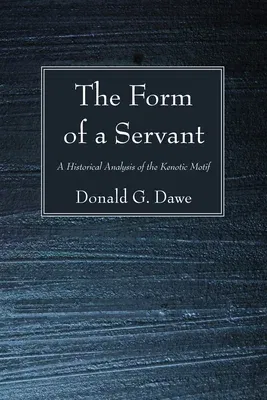This is both a historical and a systematic exploration of the basic
Christian belief in God's self-emptying in creation and redemption. In
Christ, God has ""emptied himself, taking the form of a servant."" Not
only does the author review the thinking on the kenotic motif from
earliest Christian times (even antedating the Pauline Epistles) to the
present, but he views it as a source of fresh insight for Christology
today. Kierkegaard introduced the kenotic motif to contemporary
theology, which views it as the ultimate paradox. In Barth's doctrine of
the freedom of God, kenosis means God is free to become a man. Thus,
says Dr. Dawe, kenosis is to be interpreted in dynamic, personalistic
modes of thought and is the key to a fresh understanding of creation,
history, and redemption. Seminary students will welcome this book for
its wealth of biblical and historical theology. But because of its
nontechnical vocabulary, adult study groups will find much material for
interesting and rewarding discussion Donald G. Dawe, an ordained
Presbyterian Church (USA) minister, has taught as professor at Union
Theological Seminary in New York and Virginia; Macalester College in
Minnesota; Federal Theological Seminary in the Republic of Africa;
Theological College of Northern Nigeria and University of Jos, both in
Nigeria; and Punjabi University in India.


